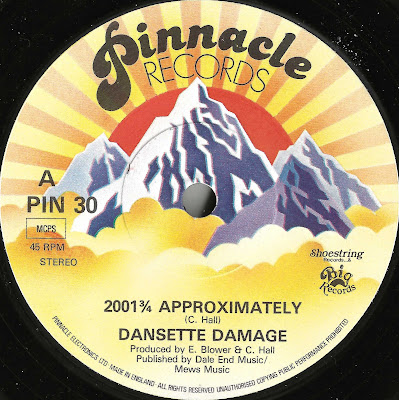Bouncy but marginally deranged popsike from this mystery band
Label: Columbia
Year of Release: 1968
Arguing about what constitutes a "psychedelic" record has been an intense political debate for collectors for decades now. People the length and breadth of the country have screamed and shouted at each other in pubs demanding to know what exactly is so "way out" about the contents of some of the "Rubble" series. Why, I even have a scar on my forehead from the time someone angrily threw a copy of Barnaby Rudge's "Joe Organ & Co" at me, yelling the words "You couldn't listen to that while taking a trip, you moron, it sounds like a third-rate sixties Bowie out-take" (Some of the above may be lies).
I'm using the word "psychedelic" to describe this record advisedly, then. It's hardly "See Emily Play", but then again... both sides are infused with a pie-eyed, child-like worldview, and arrangements which are prone to sharp diversions. "Tree Dog Song" on the A-side has one of the worst and most irritatingly child-like intros in the world, but gradually settles down into sounding like The Kinks at their most skewiff and countrified singing about God knows what.
The B-side is the real winner for me here, though, delivering absurd lyrics about domestic failures and marital break-up over a melancholy organ sound and insistent, minimal, chiming guitar line. "Oh Henry... I know that the rhubarb pie was under-done/ and your cricket pads were stained with eggy juice" the singer explains, and it's hard not to empathise. Henry sounds like a monster. The song also has a McCartney-esque bounce to it which is compelling.













